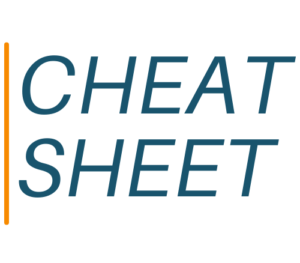
AI Fraud Threatens PR Budgets
Should tech PR pros fret about integrity of the free web? Should they worry about fake sites and fake authors that can fool the likes of Wired and Business Insider?

Should tech PR pros fret about integrity of the free web? Should they worry about fake sites and fake authors that can fool the likes of Wired and Business Insider?

Fortune’s new Fortune Intelligence section, launched this month, is pitchable against all odds. Contract editor Nick Lichtenberg is officially the pitch contact there.

You need to be logged in to view this content. Please Log In. Not a Member? Join Us
When Axios prompted ChatGPT for basic background research on Wealthfront’s confidential IPO filing last week, the bot confidently detailed a Wealthfront investor deck. The problem?

You need to be logged in to view this content. Please Log In. Not a Member? Join Us
From the excellent The Rundown AI newsletter: The future of video content creation is increasingly looking camera-less — with this latest round of upgrades taking

A subscriber recently asked for a POV on where the low-hanging fruit was in the world of AI coverage. As subjective as that might be, it’s still worth trying. Who might you suggest?
Unionized writers have secured new protections governing the use of generative AI in member newsrooms, reports the Hollywood Reporter. The union — Writers Guild of
TC’s Rebecca Bellan finds fault with Quartz for how poorly its AI rewrote a recent story of hers. Quartz doesn’t attempt to hide its use

Here’s an updated cheat sheet with 11 Substack newsletters focused on AI. The selection comprises a combo of analysis-driven work from experts, and newsletters that blend original work with ICYMI links to “AI news of the week.”
YOUR ACCOUNT
FRIDGE NOTES
This is a must-read article about both Business Insider and Wired being tricked by a phony freelance reporter writing phony stories. If BI and Wired can be fooled, everybody can be fooled.
Veteran tech journalist David Strom is working with a couple of AI developers to understand exactly the nature of his writing as it has unfolded over the years. In this edition of Sound Thinking, David shares his learnings and where everything might go.
It’s been tough to keep track of SDxCentral this year, with the sale… management moves… Here’s a podcast and an article that will help you catch up.. thank you, Ben, for the assistance.
Newly merged TechTarget and Informa this month laid off 10 percent of their employees. Check out the euphemism in the 8-K: “[the] net reduction [will be] up to approximately 10% of the Company’s current global colleague base.” That just beats all, doesn’t it?
Using NLP software, Business Insider assesses how readers will react to its content emotionally, and then sells advertising based on that info. For example, an advertiser can choose to advertise against a story (or video) that makes you feel good or optimistic or pessimistic. This is where content is headed; and this trend may someday affect the way that you pitch.